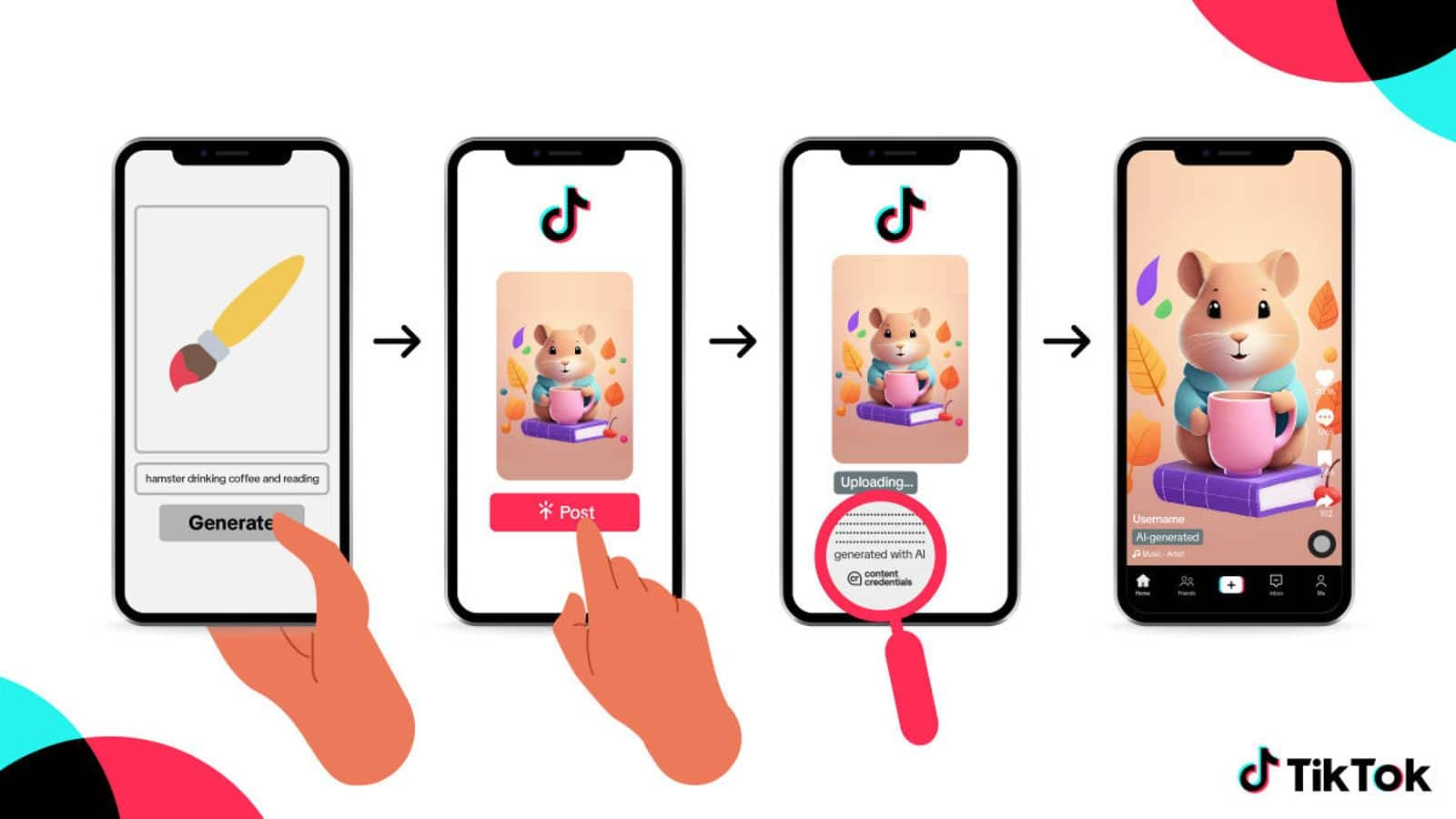
TikTok labels uploads made with external AI tools
What's the story
TikTok has announced plans to automatically label content generated by artificial intelligence (AI) from other platforms.
This development will be made possible through Content Credentials, a technology developed by the Coalition for Content Provenance and Authenticity (C2PA).
Co-founded by Microsoft and Adobe, C2PA's technology adds specific metadata to content, enabling TikTok to quickly identify and tag AI-produced material.
Implementation
The global rollout has begun
TikTok's new feature is now rolling out globally.
It automatically tags AI-produced content that is uploaded to TikTok and has Content Credentials attached.
This includes content from platforms that have adopted Content Credentials, such as OpenAI's DALL·E 3 and Microsoft's Bing Image Creator.
Google has also expressed its support for Content Credentials, besides Microsoft, OpenAI, and Adobe.
Purpose
New feature aims for transparency and ease
While TikTok already asks creators to disclose when their content is created or enhanced with AI, this new feature is an additional measure to ensure accurate labeling of AI-generated content.
It also aims to alleviate some of the responsibility from creators.
"AI-generated content is an incredible creative outlet, but transparency for viewers is critical," said Adam Presser, head of Operations and Trust & Safety at TikTok.
Future plans
TikTok to add content credentials to its own AI-generated content
In the near future, TikTok also plans to start adding Content Credentials to AI-generated content produced on its platform using TikTok AI effects.
The metadata will include details on where and how the AI-generated content was made/edited and will remain attached even when the content is downloaded.
Other platforms that adopt Content Credentials will be able to automatically label such content as AI-generated.
Company policy
Commitment against deceptive AI use
TikTok is leading the way as the first-ever video-sharing platform to implement Content Credentials.
Meta had previously announced in February its plans to build on C2PA's solution for adding provenance to content.
As part of its commitment against deceptive AI use in elections, TikTok, in its latest annoucement, has stated that its policies strictly prohibit misleading AI content — whether it's labeled or not.
Information
Collaboration on media literacy campaigns
In addition, TikTok is collaborating with fact-checking organization MediaWise and human rights organization Witness on media literacy campaigns. These initiatives aim to educate TikTok users about the labels and potentially misleading AI-generated content.